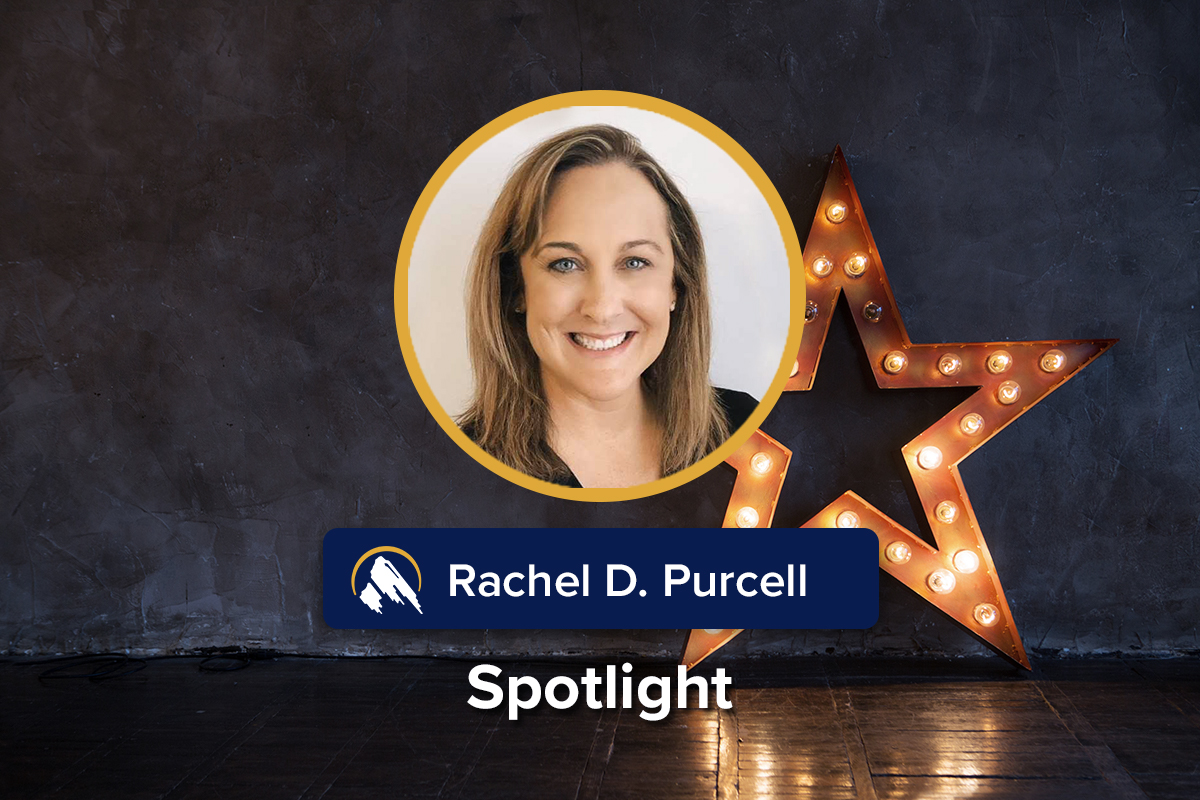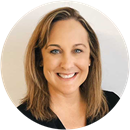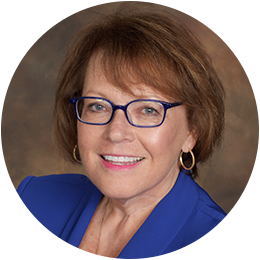
 Current Position: Director, Regional Credentialing, Quality and Operations Support, The Permanente Medical Group, Inc., Oakland, California
Current Position: Director, Regional Credentialing, Quality and Operations Support, The Permanente Medical Group, Inc., Oakland, California
We all have many paths into the profession of credentialing. Rachel graduated from Georgia Tech as an Industrial Engineer. She took a position with The Ohio State Medical Center as a management engineer and eventually became the director of outcomes research. As a result of a presentation that she did on this subject, she was recruited to a prominent west coast teaching facility in 1996 to help manage their outpatient quality programs. She became involved in NCQA delegations and ultimately became Director of Professional Services for the system and was responsible for managing its credentialing functions (that’s when I met Rachel). Fast forward for a few years, during which time Rachel got married, had children, etc. and took a hiatus from the workforce. Rachel missed working and decided to return to the workplace. She took a position as an internal consultant with Kaiser in 2008, supporting the national Board of Directors in their credentialing and privileging responsibilities. All the Kaiser regions report to the Oakland, California-based Board and Rachel was involved with making sure that the Board received standardized reports from all the facilities that reported to it (36 hospitals plus ambulatory facilities) so that the Board could make informed credentialing and privileging decisions. At the beginning of 2017, Rachel transitioned to her current position. She missed the operations work – and needed some relief from the frequent travel related to her work with the Board.
Rachel’s current position – Director of Regional Credentialing – includes oversight of a centralized credentialing department that provides services to the 20 facilities in the Northern California Region of Kaiser Permanente. She is quick to acknowledge that the successful operations are due to the many talented staff that support the department.
During her one and a half years in her current position, Rachel has been busy on the following projects:
- 1. Streamlining credentialing of telemedicine providers. Telemedicine practitioners previously were credentialed and privileged separately by as many as 19 different entities (and the telemedicine providers were not happy). Telemedicine providers will now be credentialed one time by the practitioner’s primary hospital in the Kaiser Northern California Region, using the CMS by proxy regulations.
- 2. Collaborating with Physician recruiting, HR professionals, and the local Medical Staff Offices to shorten the time required to onboard a new practitioner.
- 3. Bringing a customer focus to the Centralized Credentialing Department. Rachel’s vision is to improve the user experience by the use of technology to make the process less painful for the credentialed practitioners. This is an ongoing project.
- 4. Building teamwork and collaboration within the complex organization, especially with the Medical Staff Offices. Many of the staff are seasoned experts in the credentialing and privileging world and have dynamic ideas and creative insights on how to improve the work.
Rachel’s current initiatives:
- 1. Improve the practitioner experience with credentialing and privileging
- Re-engineer the practitioner interfaces and technology to make the process simpler
- Use text messaging as the method of accessing providers – this has resulted in huge gains and increased satisfaction on the part of the practitioners
- Quick start instructions – too often instructions on a website for completion of an online application are too voluminous and providers don’t read them. Rachel instituted quick start instructions that have been successful in teaching practitioners how to use the website.
- Ongoing outreach to enhance communication and coordination with all stakeholders
- 2. Streamlining, improving, and reducing variability wherever possible.
When asked about what she likes about her position, Rachel was quick to identify a number of things that make her want to get up every day and keep working to improve credentialing and privileging within Kaiser Northern California:
- 1. Rachel loves applying her performance improvement and business skills in the credentialing arena. Credentialing and privileging is a combination of understanding what needs to be done (which requires knowledge of regulatory/accreditation requirements), designing processes in the way that makes the most sense (rather than because something has always been done in a certain way) and applying the use of current technology. Using critical thinking and process redesign is a big component of what Rachel does to streamline credentialing and privileging operations.
- 2. In this position, working with organization leaders, Rachel is able to make things happen (not just react).
- 3. There is always something new to learn and Rachel loves the fact that she continues to grow professionally.
Rachel finds this profession exciting because it requires varied and sophisticated skills sets to lead credentialing and privileging operations:
- Information management – it isn’t just credentialing and privileging, but data management. The data that credentialing professionals are responsible for managing is critical throughout an organization – think about the data used to update payers, provider directories, etc. Rachel also loves using the data for purposes other than credentialing. She sees herself as a “data miner” and using the data collected as part of the credentialing and privileging process to have wider impact.
- Innovation – If you aren’t innovating, you are possibly behind. There are so many innovative ways to accomplish tasks with today’s technology, that while it can be hard to keep up, it is an exciting ride!
- Project management – credentialing professionals must use project management skills constantly to achieve success in changing operations, etc.
- Facilitation – these skills are necessary in order to achieve change. As we all know, we can’t just announce to medical staff leadership a change – we need to facilitate the discussions and eventual decision-making.
- Operational relationships – because of the far-reaching impact of the department operations and other aspects of credentialing, Rachel observes that she values relationships throughout her organization. She isn’t just “stuck” in one department.
Rachel sees that today’s positions (which started 30+ years ago as largely secretarial/clerical) now require systems thinkers, skill sets that can establish productive relationships through an organization, flexibility and the ability to partner with providers. When new positions come available in her department, Rachel is looking for highly motivated, educated individuals with these skill sets who embrace change and help move the department forward.
When I asked Rachel about her biggest challenges in her position two things immediately came to mind:
- 1. Standardization – since Rachel works in a large health system, standardization is key to streamlining and provider satisfaction. But it isn’t always easy to get there – and it typically takes longer than what you’d like. But the results are worth it.
- 2. Technology support and software solutions are constantly evolving. It is important to align with a proactive software vendor who is planning for the future, rather than reacting to the current environment. For example, Rachel’s vision is to apply the type of technology used by Uber or Door Dash (food delivery service) into the credentialing process – when you order from Uber or Door Dash, you can use your app to see exactly where your ride or your food is. Wouldn’t that be great to apply this to the credentialing process? Not only for the providers, but for recruitment, HR, etc.
VerityStream is fortunate to have Rachel as a speaker at our upcoming 2018 VerityStream National User Group Conference in New Orleans. She will be speaking on “Innovations in the Use of MSOW: How Text Messaging Can Support Management of Expirables and Faster Initial Credentialing.”
Thanks, Rachel for the work that you do to modernize credentialing through the use of technology and for inspiring others.
